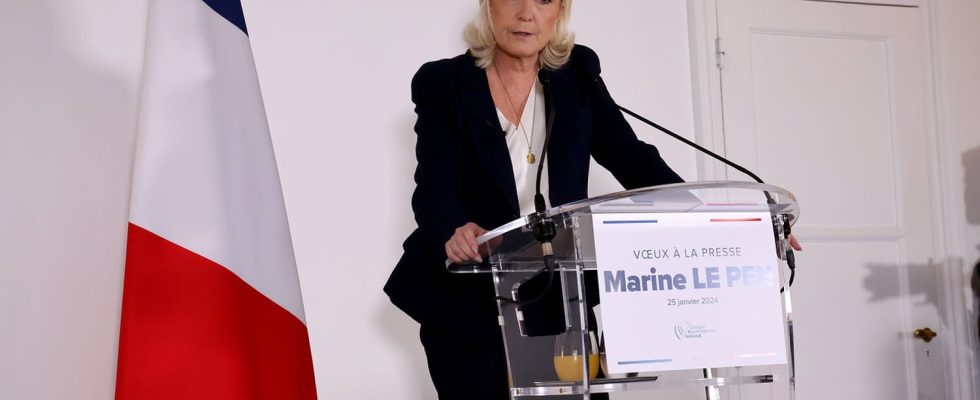On the occasion of her greetings to the parliamentary press, this Thursday, January 25, Marine Le Pen clearly distanced herself from her German partners in the AfD, mired in a controversy after having advocated “remigration”.
Cold snap on the relationship between the National Rally and its German partners in the Alternative für Deutschland (AfD, “Alternative for Germany”). A few months before the European elections, nothing must be left to chance and Marine Le Pen knows it. While the National Rally is the favorite, it was a former president of the RN who was more concerned than ever to improve the image of the far-right party who spoke this Thursday, January 25. During her greetings to the parliamentary press, which were held at the National Assembly, Marine Le Pen distanced herself from the RN’s allies in the European Parliament while some of the AfD executives are at the heart of a controversy in Germany.
Said controversy? Fifteen days ago, the site Correction revealed that several senior executives of the German far-right party attended a meeting in Potsdam last November, alongside neo-Nazis, during which the question of “remigration” was discussed. The project mentioned consisted of expelling several million “citizens [allemands] non-assimilated”, asylum seekers and other foreigners to a “model state” located in Africa. These revelations have since led to massive demonstrations against the party throughout the country.
“Let things be extremely clear, I completely disagree with the proposal that would have been discussed or would have been decided within the framework of this meeting,” declared Marine Le Pen, whose Le Figaro echoed, when he was questioned on the subject. “We have never defended any ‘remigration’, in the sense that French nationality would be withdrawn from people who have acquired it, including under conditions that we contest,” she insisted. . And the far-right leader adds: “We will be led to discuss together divergences as important as these and see whether or not these divergences have […] consequences on our ability to ally ourselves in the same group.”
